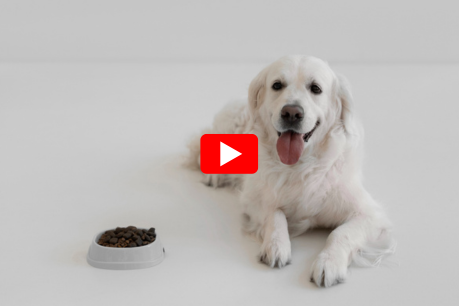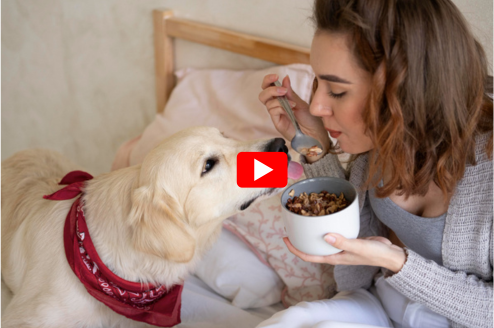Psyllium Husk Dogs Dose: Safe, Effective Guidelines & Benefits
Psyllium husk, a natural dietary fiber derived from the seeds of Plantago ovata, has gained widespread attention as a helpful digestive aid not just for humans but also for dogs.
Many pet owners and veterinarians alike are turning to psyllium husk to support canine digestive health, alleviate constipation, and promote regular bowel movements.
Psyllium husk for dogs supports digestion and relieves constipation. Typical dose varies by weight; start low and consult your vet for safety and accuracy.
However, when it comes to administering psyllium husk to dogs, the correct dosage is crucial to ensure safety and effectiveness.
This comprehensive guide will walk you through everything you need to know about psyllium husk dosing for dogs, its benefits, potential side effects, and practical tips on how to safely incorporate it into your pet’s diet.
What is Psyllium Husk?
Psyllium husk is the outer coating of psyllium seeds, a soluble fiber that absorbs water and forms a gel-like substance in the digestive tract.
This fiber bulks up stool and helps normalize bowel movements, making it an excellent natural remedy for constipation and other digestive issues.
Because it’s a soluble fiber, psyllium can also assist in managing diarrhea by absorbing excess water in the intestines and firming up stools. It supports overall gut health by encouraging healthy bacteria growth and promoting regularity.
Why Use Psyllium Husk for Dogs?
Dogs can suffer from a range of digestive troubles, including constipation, diarrhea, irregular bowel movements, and even some types of colitis. Psyllium husk offers a safe, natural way to relieve these problems by:
-
Alleviating constipation: Psyllium helps increase stool bulk and water content, stimulating intestinal muscles to promote regular bowel movements.
-
Managing diarrhea: Its gel-forming property soaks up excess fluid, firming loose stools.
-
Supporting gut health: Fiber serves as a prebiotic, feeding beneficial gut bacteria and promoting balanced digestion.
-
Preventing anal gland issues: Regular bowel movements help prevent the impaction of anal glands, a common problem in dogs.
-
Weight management: Adding fiber can promote satiety and slow digestion, aiding in weight control.
Because psyllium is natural and non-toxic, it is considered safe for long-term use in dogs when administered properly. However, the key to success lies in getting the dosage right.
Determining the Right Psyllium Husk Dose for Dogs
The ideal psyllium dose for your dog depends primarily on its size, weight, and digestive condition. Unlike medications, fiber dosing can be flexible but should be introduced gradually to avoid gastrointestinal discomfort.
General Dosing Guidelines
Here are typical psyllium husk powder dose recommendations based on dog weight:
| Dog Weight | Suggested Psyllium Husk Dose (per day) |
|---|---|
| Under 10 lbs (4.5 kg) | 1/4 teaspoon to 1/2 teaspoon |
| 10 to 25 lbs (4.5-11.3 kg) | 1/2 teaspoon to 1 teaspoon |
| 25 to 50 lbs (11.3-22.7 kg) | 1 to 2 teaspoons |
| Over 50 lbs (22.7+ kg) | 2 to 3 teaspoons |
Step-by-Step Dosing Approach
-
Start small: For first-time use, start at the lower end of the dose range to observe how your dog’s digestive system reacts.
-
Increase gradually: If needed, slowly increase the amount over a week to reach the desired effect.
-
Hydration is key: Always provide ample fresh water, as psyllium absorbs liquid and can cause blockages if your dog is dehydrated.
-
Consistency matters: Regular daily dosing is more effective than occasional use for chronic digestive issues.
How to Administer Psyllium Husk to Your Dog
Psyllium husk powder can be mixed into your dog’s food or stirred into water. Here’s how:
-
Mix with food: Blend the psyllium husk powder into wet or dry dog food. The gel-like texture once it absorbs water will make it easier to swallow.
-
Add to water: Mix psyllium with water and offer it as a supplement drink, especially if your dog refuses food additives.
-
Capsules or pellets: Some owners prefer using psyllium in capsule form, but powder mixed into food is usually easiest and most cost-effective.
Important Tips for Safe Psyllium Use in Dogs
-
Water intake: Psyllium husk absorbs liquid and expands in the digestive tract. Without enough water, it could cause choking or intestinal blockage.
-
Consult your vet: Always check with your veterinarian before starting any new supplement, especially if your dog has underlying health issues or is on medication.
-
Monitor your dog: Watch for signs of bloating, discomfort, diarrhea, or constipation when introducing psyllium.
- Avoid overdosage: Excessive fiber can cause diarrhea or gas.
-
Gradual introduction: Sudden high doses can upset your dog’s stomach. Increase the dose slowly.
-
Avoid if dehydration or intestinal blockage: Do not use if your dog is dehydrated or has a history of bowel obstruction.
Benefits
Relief from Constipation
Constipation can be caused by dehydration, dietary changes, lack of exercise, or underlying health issues. Psyllium acts by increasing stool bulk and water retention in the colon, softening stools and encouraging smooth passage.
Managing Diarrhea
While it might seem counterintuitive, psyllium can also be used to firm loose stools by absorbing excess water. It regulates bowel movements by balancing stool consistency.
Weight Management Aid
Adding fiber to a dog’s diet promotes a feeling of fullness, helping to reduce overeating and maintain a healthy weight. Psyllium slows digestion, stabilizes blood sugar, and supports gut health.
Supporting Gut Flora
Psyllium serves as a prebiotic fiber, feeding beneficial bacteria in the intestines. A healthy gut flora improves immunity, digestion, and nutrient absorption.
Preventing Anal Gland Issues
Regular bowel movements from increased fiber intake can reduce the chances of anal gland impaction—a common cause of discomfort and infections in dogs.
Potential Side Effects and Precautions
Psyllium husk is generally safe for dogs, but improper dosing or use can cause issues such as:
-
Gas and bloating: Sudden increases in fiber can lead to excessive gas.
-
Diarrhea: Too much fiber can accelerate transit time.
-
Blockage risk: Insufficient water intake with psyllium may cause intestinal blockage.
-
Allergic reactions: Rare but possible; watch for itching, swelling, or breathing difficulties.
If you notice any of these symptoms after starting psyllium, stop use immediately and consult your veterinarian.
When Not to Use Psyllium Husk
-
If your dog has a history of intestinal blockage or narrowing.
-
If your dog is severely dehydrated or vomiting.
-
If your dog is showing severe digestive distress, seek veterinary care first.
Real-Life Examples
Case 1: Mild Constipation in a Small Breed
A 12-pound dog showing signs of constipation can start with 1/2 teaspoon of psyllium husk powder mixed in food once daily. Increase slowly if stools don’t normalize within 3 days.
Case 2: Diarrhea Management in a Medium Dog
A 30-pound dog with intermittent diarrhea can be given 1 teaspoon of psyllium husk twice daily mixed in meals to help absorb excess water and firm stools.
Conclusion
Psyllium husk is a versatile, natural fiber that can greatly benefit your dog’s digestive health when used properly.
Understanding the correct dose based on your dog’s weight, ensuring adequate water intake, and consulting your veterinarian are key to making psyllium a safe and effective addition to your dog’s diet.
By incorporating psyllium husk responsibly, you can help support your dog’s bowel regularity, manage constipation or diarrhea, and promote overall gastrointestinal wellness.
References Link
- Mayo Clinic – Dietary Fiber and Health
- PubMed Central – Effects of Psyllium on Canine Digestion
https://www.ncbi.nlm.nih.gov/pmc/articles/PMC4446327/
- Veterinary Partner – Fiber Use in Dogs
https://veterinarypartner.vin.com/default.aspx?pid=19239&id=4951501
.



